44 years ago on September 5th, at the 1972 Olympic Games in Germany, the Palestinian terrorist group Black September took hostage and murdered 11 members of the Israeli Olympic Team.
If the German government and their rescue team had worked succinctly and responsibly, the captured Israelis could have been saved, rather than murdered.
In what came to be known as the Munich Massacre, Ankie Spitzer lost her husband, Israel’s fencing coach Andre Spitzer, as well as her faith in the integrity of the Olympics.
“If this is what happened to that peace-loving man, my husband, who wanted nothing more than to take part in the Olympics, then I will never shut up, never stop talking about the travesty to the Olympic ideals,” she swears.
And indeed she has not. Since 1972, Ankie Spitzer has been responding to the events of the Munich Massacre and working to memorialize the victims.
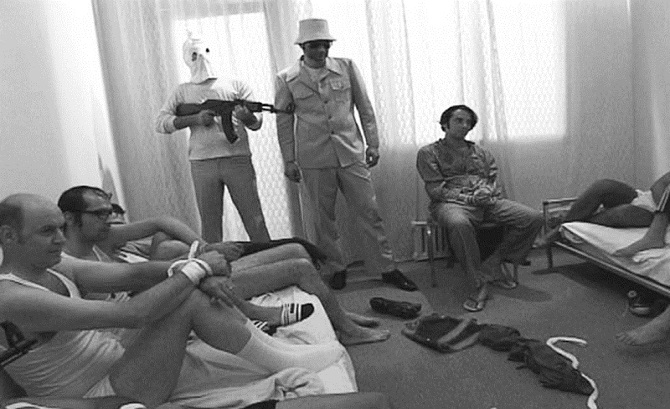
In 2003, Ankie Spitzer took the German government to court. While no amount of money can compensate for the tragic loss of her husband and the ten other victims, justice was served when the German government had to finally claim responsibility for its criminal negligence during the attack.
Aside from holding guilty parties responsible, Ankie Spitzer also strives to ensure that the victims are properly remembered and that the tragic events of 1972 are duly commemorated.
From the time of the attack up until this summer’s Olympic Games in Rio, only private memorials had been held for the victims. The International Olympic Committee (IOC), recognized the 1972 victims of terrorism and representatives of the IOC attended memorial events. But the IOC had not officially memorialized the Munich Massacre at any Olympic Games.
During the London 2012 Summer Olympics, for example, a memorial was held in Guildhall, separate from the games. Jacques Rogge, the IOC President at the time, rejected the idea of holding a minute of silence for the Munich Massacre victims. He tried to silence the idea, stating that, “The IOC has officially paid tribute to the memory of the athletes on several occasions,” suggesting this was sufficient. However, the death of athlete Nodar Kumaritashvili was recognized as were the 9/11 terrorist attacks during the Olympic games.
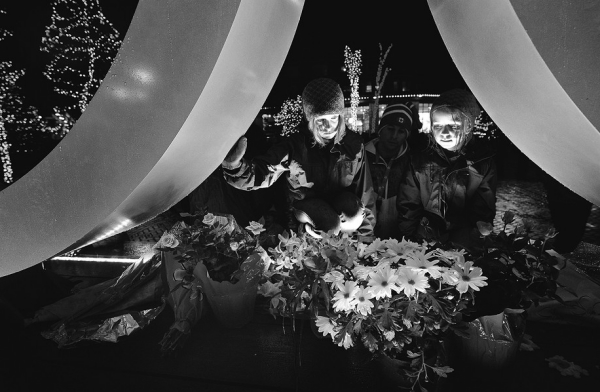
Until this August, the IOC did not want to fully memorialize the Munich Massacre. Ankie Spitzer discovered that they were worried about such a memorial causing trouble for the Olympic games. Before the 2012 London Games, Ankie Spitzer persisted with IOC President Rogge, asking why the IOC really could not memorialize the murder of the 11 Israeli Olympians. Rogge eventually explained that there were 46 Arab and Muslim countries that would threaten to boycott the Games if the IOC agreed to include such a memorial.
Every time Ankie Spitzer received a response like this, she took it personally, not for herself but for her husband. IOC officials worried about boycotts, while Ankie’s husband and 10 other Israelis had been victimized and killed by terrorism. Rather than respecting the dead and standing up against terrorism, the IOC was pathetically allowing the threats and bullying of anti-Semitic countries to control them.
Finally, during this past Summer Olympic Games in Rio, the IOC hosted an official memorial for the 11 Israelis who were killed 44 years ago.
After reading the names of the 11 victims at a ceremony in the Rio Olympic village, IOC Chief Thomas Bach spoke on the importance of the memorial event:
“We commemorate them because this was an attack not only on our fellow Olympians, but also an assault on the values that the Olympic Village stands for. It was an attack on the universal power of sport to unite all of humanity in peace and solidarity.
“The Olympic Games are always an affirmation of life so let our commemoration today also be an affirmation of their lives. Through this act of remembrance, the spirit of those who have departed continues to live on.”
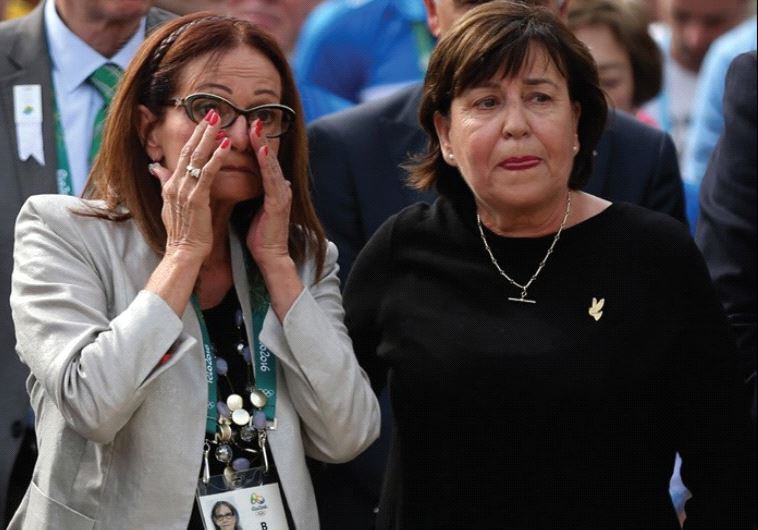
Following the ceremony, Ankie Spitzer expressed that the first memorial at the Olympic Games was a historic step, with the IOC taking the responsibility to organize the event inside the Olympic Village. She – and the Israeli people as a whole – finally felt a sense of closure after over 40 years.
This summer, Israeli Olympic athletes also commemorated the 1972 Munich Massacre victims in their own ways. The Israeli athletes came to the Rio Olympics to win, and in doing so, they were also able to pay their respects to the 1972 Israeli Team victims of terror by dedicating their success to the victims or simply by standing strong in the face of anti-Semitism at Olympic Games.
Following her win, Israeli Judoka Yarden Gerbi exclaimed that winning a bronze medal at the recent Rio Olympic Games is nothing short of “a dream come true.” But she also recognized the honor of earning this medal with two widows of the Munich Massacre victims, Ilana Romano and Ankie Spitzer, by her side during the games. After her win, Gerbi decided to specifically dedicate her success to the victims of the Munich Massacre.
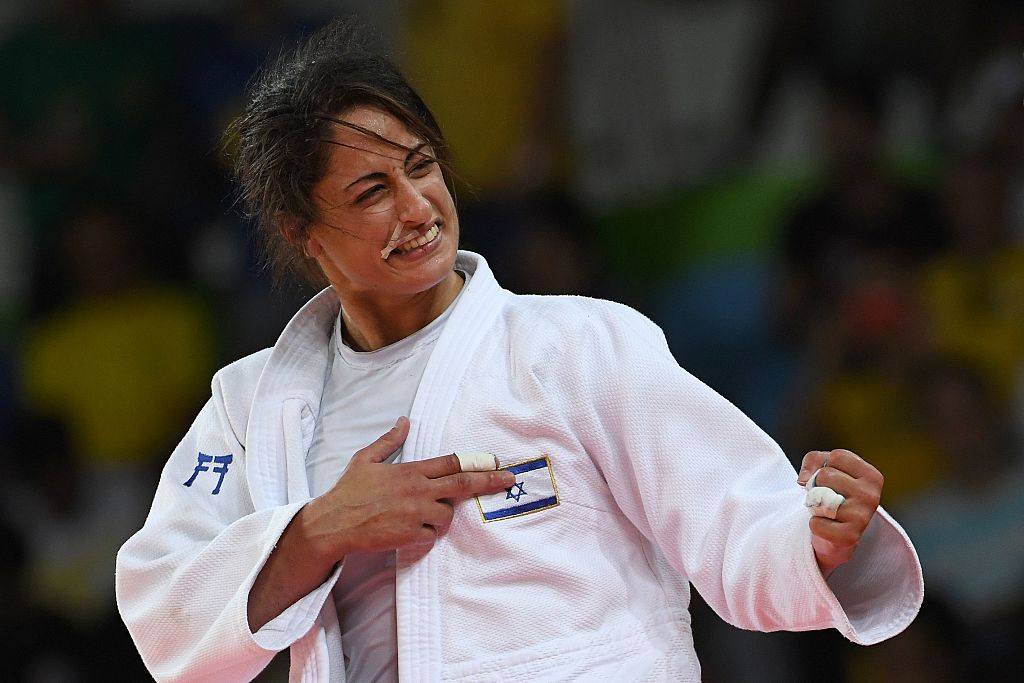
Anti-Semitic Palestinian terrorists murdered the 1972 Israeli Olympic Team members. Fast forward to 2016, and many members of the 2016 Summer Olympics Israeli team also experienced discrimination in Rio. The Israelis stood strong in the face of all the hatred, only responding with success and pride in competing for Israel at the Olympic Games. For example, Or Sasson did not let the refusal of Egyptian Islam el-Shahabi to shake his hand affect his joy and pride in winning two medals for Israel. Thankfully, anti-Semitic incidents at this year’s Games were followed through by the IOC with public reprimands, providing a glimmer of hope that shaming discriminatory athletes will prompt them into behaving appropriately at future professional sporting events.
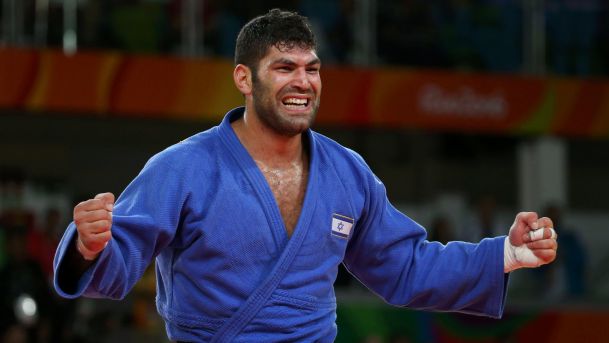
Just as Israelis are known to not let terrorism keep them from celebrating happy occasions, the team was not discouraged by anti-Semitism at the 2016 Rio Olympic games. The Israeli team came to win and stayed focused on their goal regardless of the bigotry thrown at them by other teams.
While the Israeli team stood proud of their success for Israel, the anti-Semitism did put a damper on the Rio Olympic Games in general. “Committed to building a better world through sport,” the IOC strives for good sportsmanship. Unfortunately, some countries chose to abuse the esteemed Olympic sense of sportsmanship. They used the games as a catalyst for political statements and expressions of anti-Semitism.
There were many highs and lows for Israel at the recent Rio Olympic Games. While nothing can make up for the tragic loss of 11 Israelis at the 1972 Munich Olympic Games, at least their memory has now been fully respected by the IOC community. And similarly, while the anti-Semitism at the recent Rio games is uncanny and absolutely unacceptable just as it was at the 1972 Munich games, the Israeli Olympic Team at least was able to compete and represent Israel on an international level.
Though long overdue, following the IOC’s public ceremony for the Munich Massacre victims and its public punishments of racist athletes, there is hope for the future. While some countries bully Israeli Olympic athletes, they turn around and smile with pride after giving it their all in every competition and succeeding in the face of hate.
Contributed by CAMERA Intern Penina Simkovitz.

